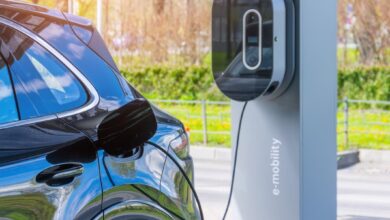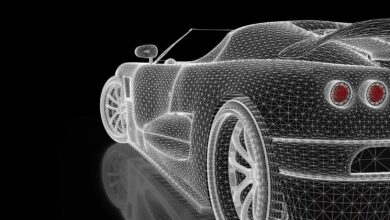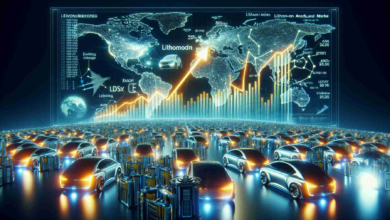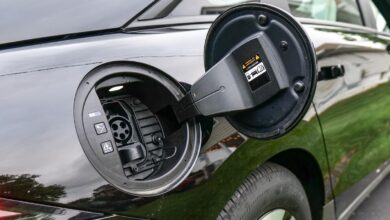New EV tax credit rules mean cars with Chinese materials won’t qualify — but there’s a catch
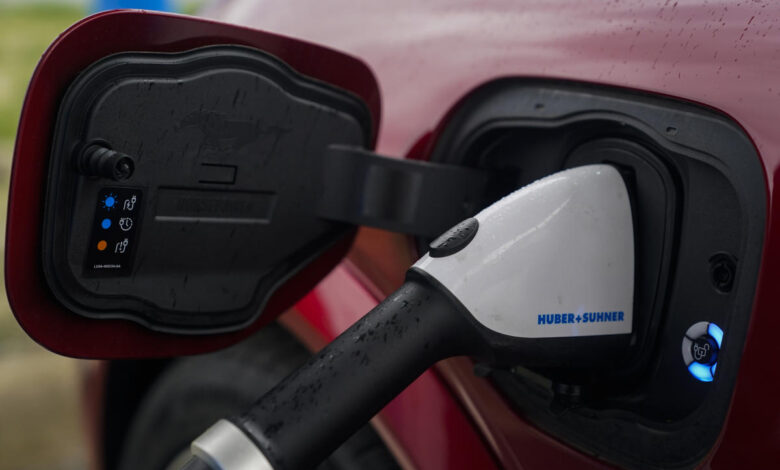
New rules from the Treasury Department will make it harder for vehicles to qualify for the full federal electric vehicle tax credit of $7,500 if key components are sourced from China.
But the rules also offered a two-year reprieve on some materials that are mostly sourced from China.
Late last week Treasury released new rules mandating that manufacturers not use critical materials that originate from a Foreign Entity of Concern (FEOC) — including China, Russia, North Korea, or Iran — by 2025 if they want to receive the full EV tax credit.
The federal government, however, is giving automakers some important leeway in sourcing some rarer materials, like graphite.
“The final regulations also identify certain impracticable-to-trace battery materials,” the Treasury said, adding that “qualified manufacturers may temporarily exclude these battery materials from FEOC due diligence and FEOC compliance determinations until 2027.”
Currently, the Inflation Reduction Act’s (IRA) federal EV credit requires that manufacturers ramp up sourcing of battery “critical materials” such as nickel and cobalt from the US and its trade partners and ensure that battery components are increasingly built in North America.
The White House’s goal with the mandates was to reduce the industry’s reliance on battery materials and components from China.
China’s chokehold over battery mineral production is the main concern for automakers who need to diversify supply chains and for the federal government as it looks to boost domestic production of these minerals. Morgan Stanley estimated that 90% of the EV battery supply chain originates from China, with Chinese companies like CATL and BYD dominating the space.
The “impracticable-to-trace” exemption is a boon for automakers in sourcing low-value and hard-to-trace elements like graphite, which is a critical component of a battery’s anode and comes mainly from China.
The automakers and their main trade group, the Alliance for Automotive Innovation (AAI), cheered the 2027 exemption for non-traceable elements.
“This updated guidance from the Treasury Department is something we recommended. It makes good sense for investment, job creation and consumer EV adoption,” said John Bozzella, AAI president and CEO.
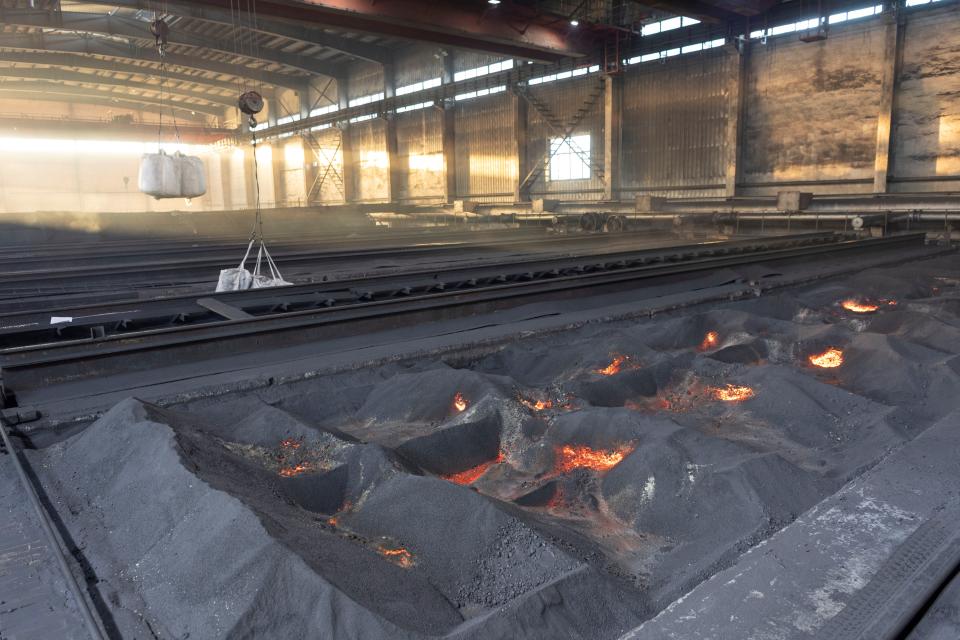
Bozzella also noted that the EV tax credit was hard enough to qualify for; only 20% of EVs received the credit, and on top of that, requirements will get harder next year. Currently, only 22 vehicles sold in the US qualify for the tax credit, and only 13 of them qualify for the full $7,500.
A restriction on trace or low-value minerals would have meant even fewer (if not all EVs) would no longer qualify for the credit.
“Imagine an EV that complied with all IRA eligibility requirements but is kicked out of the program because of a trace amount of a critical mineral from an FEOC,” Bozzella said. “That makes no sense — especially when you consider the massive investments automakers and suppliers are making in domestic EV manufacturing.”
Read more: Are electric cars more expensive to insure?
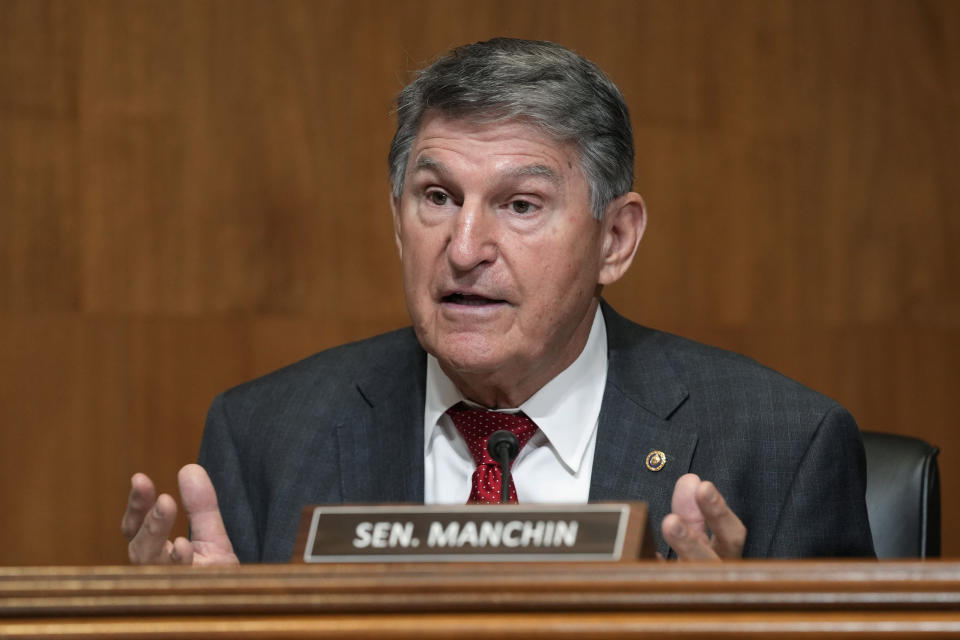

“President Biden’s Inflation Reduction Act has unleashed an investment and manufacturing boom in the United States,” Treasury Secretary Janet Yellen said in a statement.
“I’ve seen firsthand in Tennessee, North Carolina, and Kentucky how ecosystems have developed in communities nationwide to onshore the entire clean vehicle supply chain so the United States can lead in the field of green energy.”
The White House also noted that 15 battery gigafactories have been commissioned in the US since the start of Biden’s term in office.
But critics, like Senator Joe Manchin (D-W.Va.), who helped push IRA legislation through the Senate back in 2022, see this loophole as the White House “breaking the law.”
“With this final rule for the consumer credit, their creation of loopholes in the commercial vehicle credit, and their EPA tailpipe rules, the Administration is effectively endorsing ‘Made in China,'” the Democratic senator from West Virginia said in a statement, adding that the White House is “blatantly breaking the law by implementing a bill that they did not pass.”
Manchin has vowed to lead a Congressional Review Act resolution of disapproval for the IRA’s tax credit implementation, which could lead to the repeal of Treasury’s guidance for untraceable elements.
Pras Subramanian is a reporter for Yahoo Finance. You can follow him on Twitter and on Instagram.
Click here for the latest stock market news and in-depth analysis, including events that move stocks
Read the latest financial and business news from Yahoo Finance
